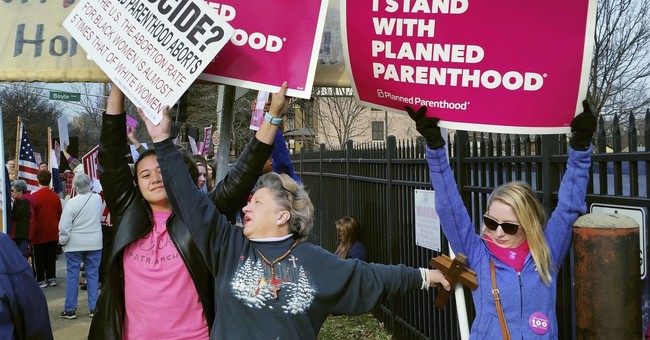This week, it has become clear that House Democrats will likely be forced to vote to impeach President Trump in 2019 on allegations of conspiracy to violate campaign finance law, obstruction of justice, and suborning of perjury. The case that Trump committed such violations isn’t implausible, at least after developments this week concerning American Media Inc. (AMI), parent company of The National Enquirer, and Michael Cohen. That doesn’t mean there’s enough evidence to prosecute — but it does mean that there may soon be. And it doesn't mean that there's enough there to impeach — but it's likely that Democrats will do it anyway.
Here’s the quick breakdown on each potential charge:
Campaign Finance Violation. The case here is that Trump worked with Michael Cohen, pushing Cohen to pay off former Trump paramour Stormy Daniels in the midst of an election cycle after hearing via AMI that Daniels was looking to tell her story. The alleged crime would be that the Daniels hush money was a campaign expenditure, given that it would not have existed “irrespective of the candidate’s election campaign.” How do we know that Trump wouldn’t have paid off Daniels outside the campaign? AMI has now admitted that it paid former Trump paramour Karen MacDougal $150,000 “in concert with a candidate’s presidential campaign, and in order to ensure that [MacDougal] did not publicize damaging allegations about the candidate before the 2016 presidential election. AMI further admitted that its principal purpose in making the payment was to suppress the woman’s story so as to prevent it from influencing the election.” Cohen has said that his payoffs were made at Trump’s direction, as well.
Trump’s defense that he would have paid off Daniels “irrespective” of the election thus relies on him calling AMI and Michael Cohen liars — or at least pointing out his long history of hush payments outside of the election. The only alternative defense Trump can offer is that he relied on his lawyer, Cohen, not to violate campaign finance laws; Cohen failed, but that’s not his fault. The problem is that today, Trump stated in an interview that Cohen was responsible more for “public relations than law” and handled “low level work.”
ADVERTISEMENT
SCROLL TO CONTINUE READING
Surborning Perjury And Obstructing Justice. The crime of suborning perjury requires these elements, according to the Department of Justice: “that perjury was committed; that the defendant procured the perjury corruptly, knowing, believing or having reason to believe it to be false testimony; and that the defendant knew, believed or had reason to believe that the perjurer had knowledge of the falsity of his or her testimony.” Cohen is already setting Trump up for this, having pled guilty to perjury himself in his testimony before Congress. Now all he has to establish is that Trump instructed him to lie for him. Trump’s defense: Cohen is lying to procure a better deal from prosecutors. It’s not merely Cohen who puts Trump in the line of fire for suborning perjury: Michael Flynn, who has pled guilty to lying to the FBI, could theoretically do the same, although we’ve seen no indicators that Flynn will blame his lying to the FBI on Trump.
The crime of obstruction of justice under 18 USC 1503 requires that the perpetrator “corruptly or by threats or force, or by any threatening letter or communication, influences, obstructs, or impedes, or endeavors to influence, obstruct, or impede, the due administration of justice.” Similar crimes involve witness tampering (18 USC 1622). If Trump pressured or threatened Cohen to push him to lie to investigators, or encouraged anyone else to do so, such charges could come into play. Cohen may testify to such activity still. And Trump tweeted last week, “Michael Cohen asks judge for no Prison Time. You mean he can do all of the TERRIBLE, unrelated to Trump, things having to do with fraud, big loans, Taxis, etc., and not serve a long prison term?...He lied for this outcome and should, in my opinion, serve a full and complete sentence.”
Because these charges may end up being plausible, House Democrats will be hard-pressed not to push for Trump’s impeachment. The Democratic base has wanted Trump impeached from the very first day. If Trump is guilty of any criminal conduct — or even if he’s innocent, but indicted — the clamor will be too great to ignore.
But is this stuff impeachable?
In 1997, the answer would have been yes.
After Bill Clinton’s impeachment and acquittal, the answer is pretty obviously no.
Clinton was impeached on obstruction and perjury based on his testimony and pressure on others regarding their testimony on Monica Lewinsky. The Senate acquitted him. The political lesson taken from this was that impeachment was deemed inappropriate in cases in which the president’s ability to operate was not threatened by the criminal activity under consideration. The same lesson applies here.
We will hear clamor from Democrats that this is different — it truly isn’t. The campaign finance piece of the puzzle is the most dicey to pin down; it’s not clear that hush money payments can even fall under the rubric of campaign expenditures, which they would have to do in order to become illegal campaign expenditures. Clinton suborned perjury and obstructed justice about ancillary matters; at most, that seems to be what Trump has done here as well.
The hue and cry by the media will be about the hypocrisy of Republicans who voted to impeach Clinton but won’t vote to impeach Trump. But here’s the reality: the Clinton impeachment hearings changed the standard for impeachment. Up until then, both parties seemed to agree that criminal activity by a president was impeachable; Republicans were behind the attempted impeachment of Richard Nixon that ended with his resignation. But Democrats broke that bargain in 1998 and 1999. That led directly to Trump’s election. He campaigned openly on the fact that he didn’t have clean hands, and didn’t pretend to. Hell, Democrats supported Bill Clinton’s similarly corrupt wife in 2016. To now turn around and pretend that they want to restore honor to the Oval Office by upholding a standard for impeachment simply rings false. Democrats aren’t interested in restoring a moral framework. They’re interested in Republicans restoring a moral framework while Democrats continue to ignore such a framework for their own beloved politicians.
That’s unworkable. And it means that Trump isn’t going anywhere. Instead, he’ll likely be impeached by a Democratic House if the expected indictments drop, and then acquitted by the Senate. At that point, the Southern District of New York will threaten Trump with criminal indictment upon him leaving office, which means that he won’t be able to resign without the possibility of jail time. That means 2020 will be a battle over whether Trump should go to prison. The Democratic slogan will become “Lock him up!” and the Republican slogan will become “Witch hunt!”
Buckle your seatbelts. It’s going to be a bumpy two years.
 Image via Chess Ocampo / Shutterstock.com
Image via Chess Ocampo / Shutterstock.com

















 All he is saying is that we have a right to defend ourselves as Black ppl against White people, that's all
All he is saying is that we have a right to defend ourselves as Black ppl against White people, that's all Unfortunately u're so caught up in hatred against Black ppl so it's easier to misinterpret to feed the monster in u.
Unfortunately u're so caught up in hatred against Black ppl so it's easier to misinterpret to feed the monster in u.